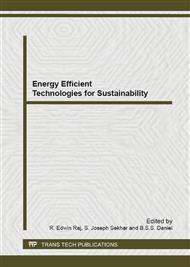p.226
p.231
p.238
p.245
p.250
p.255
p.265
p.272
p.280
Effects of Compression Ratio on Performance and Emission of Internal Combustion Engine with Used Vegetable Oil Methyl Easter
Abstract:
Biomass derived vegetable oil is a promising alternative fuel for an internal combustion engine. Direct use of vegetable oil has inferior performance with higher emission due to its higher viscous in nature. This can be overcome by transesterification process with its byproduct which is called as used vegetable oil methyl ester. While blending this biodiesel with fossil diesel upto maximum of 30:70, will give the higher performance and lower emission than the fossil diesel alone. In this present study biodiesel in the form of B23 is used in a four stroke water cooled variable compression ratio engine without any modifications. The performance and emission characteristics are studied with different compression ratio and compared with a base line fossil diesel mode operation. This study reveals that the compression ratio of 18 is the optimum in the view of ignition delay, maximum pressure crank angle, exhaust gas temperature and Smoke emission.
Info:
Periodical:
Pages:
250-254
DOI:
Citation:
Online since:
September 2013
Authors:
Price:
Сopyright:
© 2013 Trans Tech Publications Ltd. All Rights Reserved
Share:
Citation:


